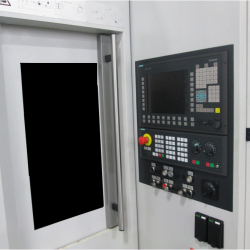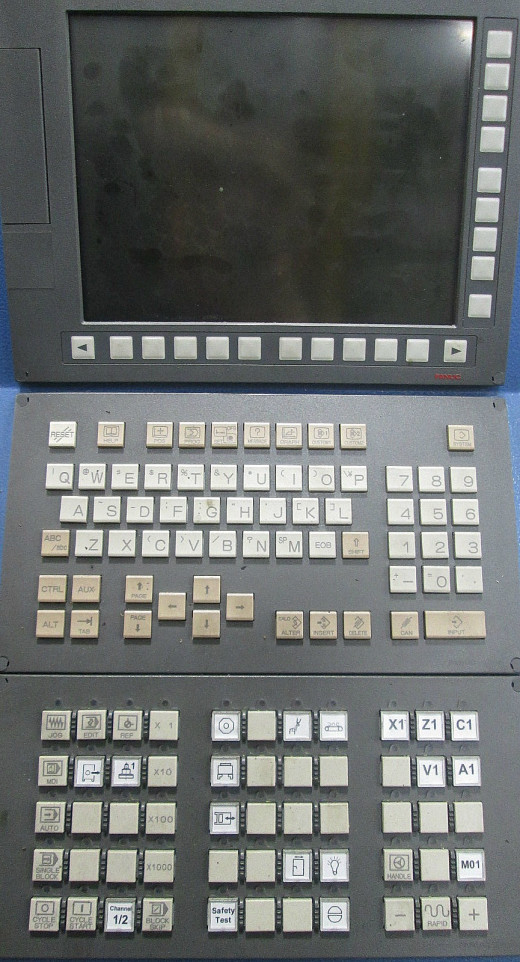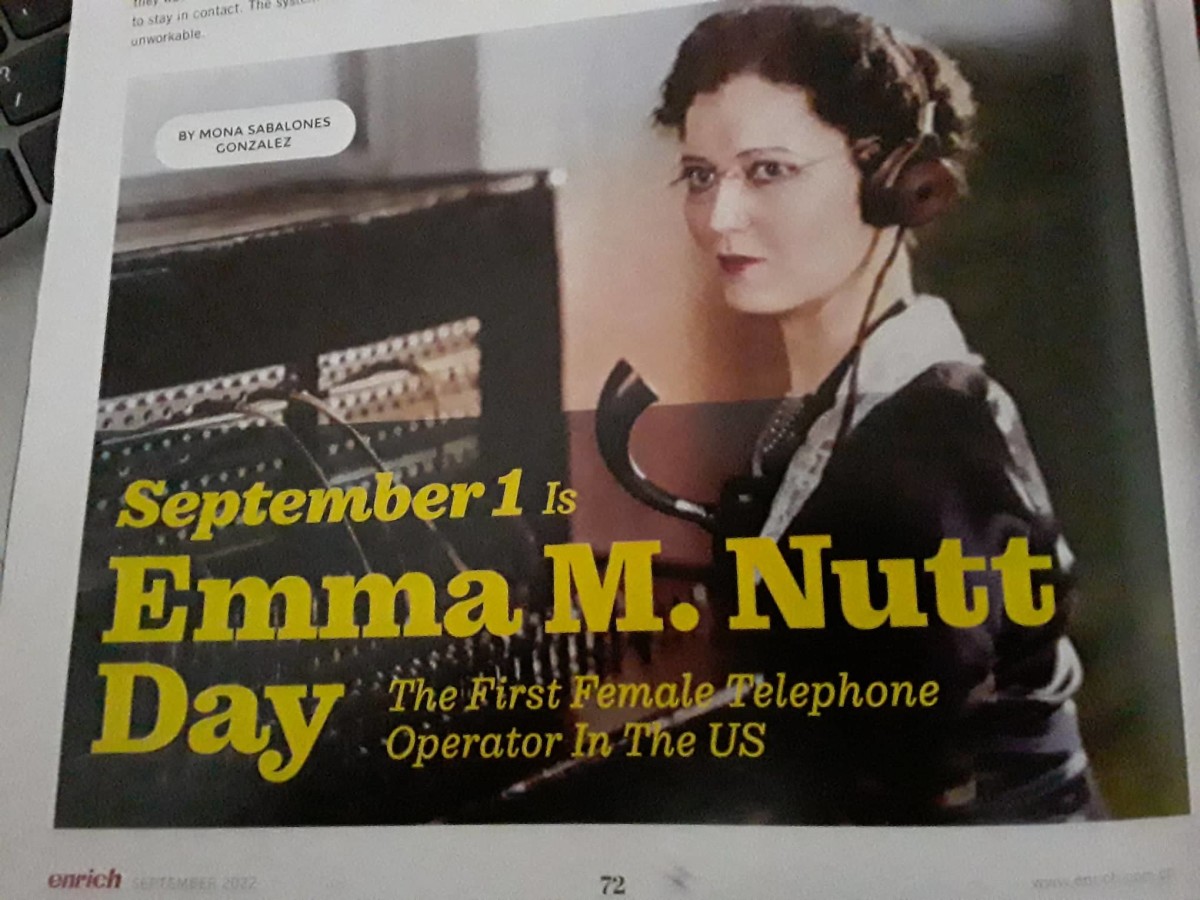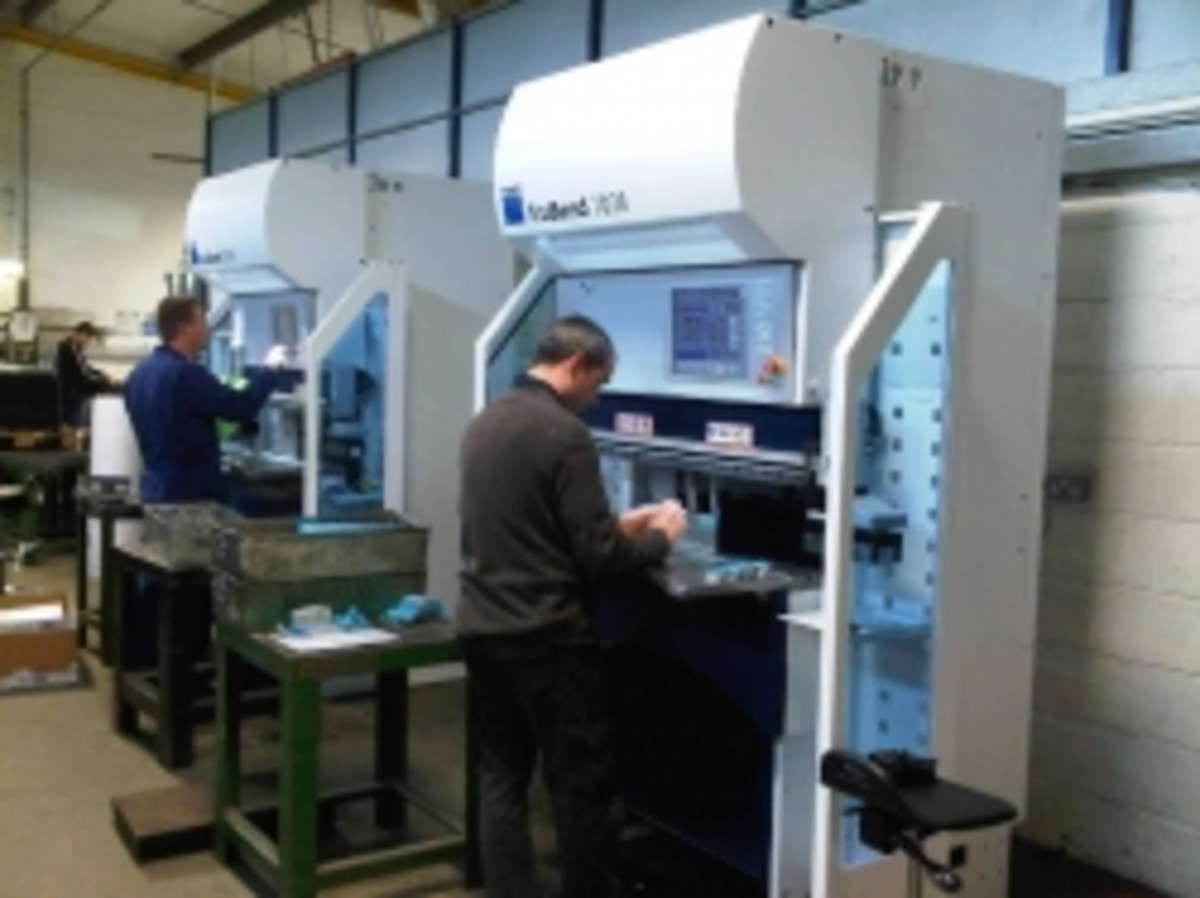What Is a CNC Operator

What Is a CNC Machinist or Operator
The simple answer to what is a CNC machinist or CNC operator, is basically they are a person who runs a CNC machine. However the duties for this person can vary widely from one company to another.
If you are wondering what does CNC stand for? It is short for Computer Numerical Control. The person will be responsible for a machine that has its functions controlled by a computer.
A program is made using codes comprised of letters, numbers, and symbols. This program can be entered in two ways. One way is It can all be typed in using the keyboard that is on the machine itself. Another way is to use a CNC program such as Mastercam to create the program on a computer and then transfer it to the machine. The machine then follows the codes in the program to select the tool, feeds, speeds, and the tool path.
The most basic requirements for an operator are to start and stop the machine. There can be much more involved and this will be discussed in detail.
All images © of whatsittoyou
Watch a CNC Machine In Action
Machine Operator Job Descriptions
There are actually a few levels of being a CNC operator. The level of skill required for the job should be represented with different job titles. However some companies when advertising that they are hiring will just use that generic term, regardless of the skill level that they want.
So while a job posting may state that they are looking for a CNC operator they may actually want much more than the basics. Other companies will use proper job titles or provide a clear description of their expectations. Below is the different titles and levels explained so that you can know what will be expected of you.
CNC Operator
CNC Operator: This is the proper title for someone who is generally only expected to do the basics of the job. This would include loading the material or casting into the machine, starting and stopping the machine.
They are also responsible for reading a blueprint or drawing and then measuring the part to make sure it meets the specifications. These measurements might be done with simple GO/NO GO gauges or with more complex measuring equipment, such as a vernier or a micrometer.
CNC Machinist
A CNC machinist will be expected to do more than the basics. They are at least likely to be expected to change their own inserts and make offsets to the machine. The may also have to change the tools and make small adjustments to the program.
They may work on parts that have many features and that will require a better capability for blue print reading. They are also most likely to be using the more complex measuring equipment rather than just simple GO / NOGO gauges.
Roller Cabinet for a Machinist

CNC Set Up and Operator
A CNC Set Up and Operator is required to set the job up on the machine that they will be running. This would generally entail calling up the program, setting up the tools in the machine, and proving out the program. After they have done this then they are expected to operate the machine with all the expectations of a CNC machinist.
For some companies this person is also expected to actually do the programming of the machine as well. There can also be duties of doing basic maintenance work on the machine. You may be asked to set up machines for other people.

CNC Set Up Man or Lead Hand
CNC Set Up Man or Lead Hand:This person usually does not operate a machine. They set up the different jobs on all of the machines in the factory. They are also responsible for helping the basic operators with making offsets, tool changes, and any other machine related trouble shooting.
Setting up a job can require removing fixtures and putting on the new one. You will need to remove the old tooling and place the new tooling in the proper locations. Depending on the size of the company you may be required to preset the tools that will go into the machine.
You will have to load the new program and prove it out. Proving out a program means reading the code and making sure that the machine/tools are going to where they are supposed to be going and doing what they are supposed to be doing.
Then you will need to check the parts and make any necessary adjustments to have everything be within specifications. To be able to do this job you better have a good understanding of CNC programming.
CNC Machine Training
When I wanted to move up from being an operator to a set up man I was told I had to go to night school. At first I didn't think that was fair other people had the job who didn't go to school. They were just trained on the job, so why couldn't I do that. They said they were changing and wanted more going forward.
Going to night school for CNC programming was the best thing I did for my career. The company would pay for it as long as you passed the class. They started making people take tests when they applied for new job. When the Set up man job was posted I was one of the only ones to pass the test. Once I got the job I was still provided with training but I was much further ahead of my colleagues in understanding the programming.
The programming courses also helped me to find a new job quickly when my company had major lay offs. The courses would show prospective employers that I had skills, initiative, and was willing to learn. The other employees who just stuck with their basic skills struggled to find new jobs or at least ones that paid well.
CNC Programming

CNC Programmer
CNC Programmer:A CNC programmer is required to provide the programs for the machines. This may require writing out the code yourself or they may use programming software that will generate the code. This person is also likely to be making the decision on what tools will be used to cut the part. They might even be included in the choice of the fixture used in the machine.
Be Your Own Boss
If you become very good at the job you can even start your own business. One of the guys I used to work with actually had a CNC machine in his garage. He could use it create his own projects for himself.
However he also started going to local companies to see if they could use help because they were struggling to keep up with demand. Once they saw the quality of his work they started placing orders with him on a fairly regular basis. This helped him supplement his income while he was working and he kept doing it when he retired.








